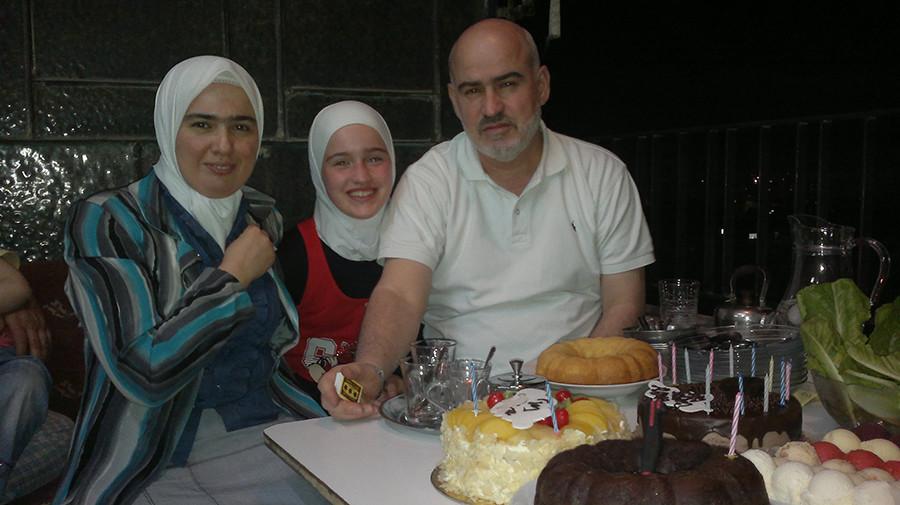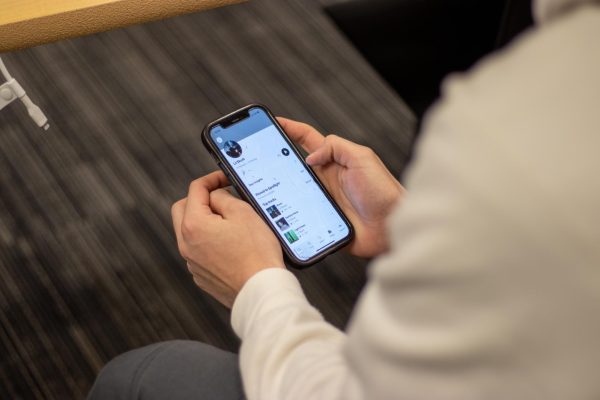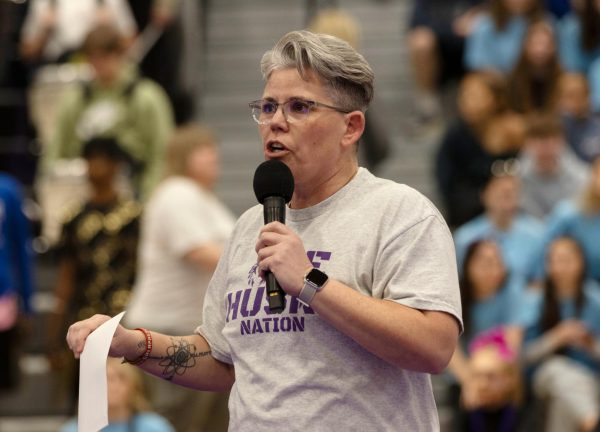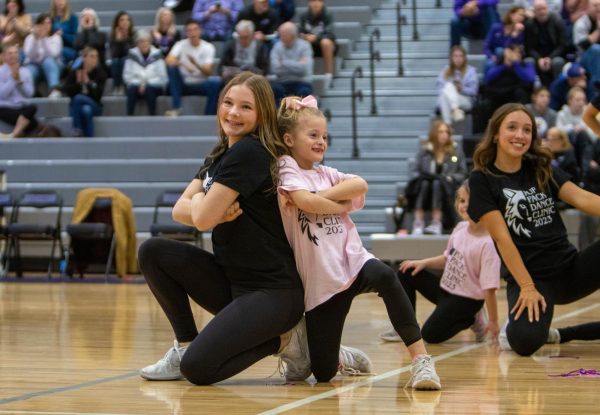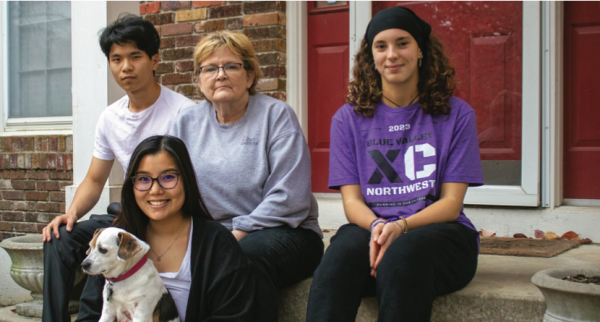Syria divided: One student’s story about fleeing the civil war
With the ongoing armed conflict in Syria, junior Rama Bakir left her homeland with her family to escape the dangerous conditions caused by the civil war.
The crowd bustles with life as women, men and children make their way down the busy and lively downtown. It is like any other city, with people shopping and children on their way home from school. Everything appears to be normal, except for the deafening noise of gunshots and explosions in the background.
Due to the civil war in Syria, junior Rama Bakir and her family moved from Damascus, Syria, to the U.S. in 2012. The war has embroiled the country since 2011. Bakir said the family made the decision to move because life became dangerous in Syria midway into the war.
“We lived there for two years of the war,” Bakir said. “It wasn’t dangerous at first – like (midway into the war) we started to see tanks…shooting. So we’re like, “we’re just going to move.’”
Gail Buttorff, assistant professor of Political Science at the University of Kansas, who has done research focused on politics in the Middle East, said the armed conflict was initially between the Syrian opposition forces and the regime of President Bashar al-Assad. She said although the conflict was originally about removing Assad from power, the motives changed as different groups became involved in the conflict.
“Among the domestic Syrian opposition groups, there’s never really been a unified opposition,” Buttorff said. “They’ve always had multiple players; secular and some Islamic groups…It becomes increasingly complex because of the number of both the domestic and international players that are now involved in the conflict.”
Buttorff said the perception of the war depends on the area of Syria someone originates from. She said like any war, people shift their alliances based on the situation and their personal experiences.
Bakir said to her, the war was between President Bashar al-Assad’s government and “the good people.” She said the government has been responsible for the problems within the country.
“School was bad. Everything that the government controls is bad. The streets were not always clean,” Bakir said. “It’s a war between the people against their government because it’s a bad government and the people need to change it.
According to Buttorff, however, it is not possible to characterize the Syrian opposition in one particular way.
“There’s not just one rebel group,” Buttorff said. “So you cannot characterize the Syrian opposition as either the good or the bad guys.”
Bakir said everyday life in Syria was peaceful but intense. She said despite the dangers of war, people went on with their daily lives.
“It was the same thing but with an audio in the background of guns shooting and like explosions,” Bakir said. “People were and are doing their normal things. Some people had to change their houses.”
However, she said that soon the people around her became accustomed to living with the war.
“The kids and people in general, they got used to the sound,” Bakir said. “So if anything happened we were like, ‘Oh, what happened? Oh, just the tanks exploded. Oh, OK.’ No one is getting really scared unless it’s happening right next to you.”
Because she lived next to the Presidential Palace, Bakir said the environment was peaceful, so she was not particularly scared. However, there was one instance in which she worried for her safety.
“We [could] see the tanks and the helicopters and the planes, but we never got affected or anything,” Bakir said. “One time there was a tank right behind our house and (it) shot, and the whole building started to shake. It was scary.”
The kids and people in general, they got used to the sound. So if anything happened we were like, ‘Oh, what happened? Oh, just the tanks exploded. Oh, OK.’ No one is getting really scared unless it’s happening right next to you.
— junior Rama Bakir
Maisa Al Khatib, Bakir’s mother, said the war was horrible because of the constant bombings and fire shootings that occurred.
“There were two bombings that happened when my kids were at school,” Al Khatib said. “A very, very loud sound we heard. I never heard [a sound] like this before. Then I called the school and I [wanted] to get them back to our home. It wasn’t at my children’s school it was at another place. It was very scary.”
Al Khatib said she did not want her children to go to school because of the constant threats present due to the war.
“I [didn’t] want them to go to school; it was scary,” Al Khatib said. “You don’t know where anything will happen.”
Buttorff said like any war, the one in Syria has had negative effects on the daily lives of its people. She said some of the major concerns in Syria have been the lack of access to basic services, the shortage of food and medicine and increasing food prices.
Bakir said some of these concerns played a role in her family’s decision to leave the country.
“We came here because [my dad’s] work was bad, the [prices were] rising up and schools cost so much,” Bakir said. “And (because) it was dangerous, obviously.”
Bakir’s dad had U.S. citizenship because he studied at the University of Missouri Kansas City; as a result, Rama and her siblings received automatic citizenship. After Maisa received her immigrant visa, the family made the move.
“At first I don’t want to come and move from my country,” Al Khatib said. “We [had] to move here…I thought it will end for two years. I didn’t expect it will go on like this. Now, I think it will not end.”
Bakir said the family moved specifically to Overland Park because he studied at UMKC and had friends who lived in the area. Bakir said she noticed the environment in Overland Park is more organized and clean in comparison to Damascus, and the people here are also kinder in their approach.
When they first moved here, Bakir said the biggest struggle was knowing she left her family behind.
“(I felt) terrible…knowing that I won’t [go] back and I won’t see my relatives,” Bakir said. “If I went back it would be different. It’s just different because I have no relatives here.”
However, Bakir said she initially thought her stay in the U.S. as well as the war in Syria were temporary.
“When we came here (I thought the war) was just going to happen for one more year and then it’ll get better,” Bakir said. “Now everything is going bad. You cannot see the end, there is no end. We can’t find one. It’s just getting worse and worse.”
Buttorff said the lack of unification within the opposition is a major factor in the war’s prolonged duration. Additionally, Buttorff said that the government under Assad has used different tactics to protect the leader’s position.
“[Assad] remains an authoritarian leader,” Buttorff said. [His government’s] bombing campaigns and their oppression of the opposition forces has been quite brutal since the war started.”
When we came here (I thought the war) was just going to happen for one more year and then it’ll get better. Now everything is going bad. You cannot see the end, there is no end. We can’t find one.
— junior Rama Bakir
Al Khatib said she feels the biggest problem with the situation in Syria is the lack of help and support for the people of the country. She said the only way to fix the problem is to take power away from the current president.
“Just remove the president,” Al Khatib said. “I don’t want anyone to accept the refugees, I don’t want anyone to get out of Syria. I just want this person to get out. I don’t want anybody to kill him. Just take him out.”
Buttorff said the international community is starting to discuss the possibility of removing Assad from power as a solution. But she said varying interests lead to disagreements that prevent countries from reaching a solution.
Bakir said over the years she was surprised by the number of refugees who have left and continue to leave Syria. She said if the president stays she hopes that other countries, especially the Middle Eastern ones, will help Syria.
“When we got in trouble no one [was] helping us outside of our country,” Bakir said. “If the president stays, I want the other countries to help the Syrian people. If the Middle Eastern countries helped more that would be great because they speak the same language – they’ll get each other.”
According to Buttorff, there is a clear need for the international community to get involved and focus on the refugee crisis. Turkey, Lebanon and Jordan are currently the countries with the highest number of Syrian refugees, according to the United Nations High Commissioner for Refugees.
“The potential economic and political ramifications of having those huge numbers of refugees is something that the international community can deal with,” Buttorff said. “In terms of providing aid, giving money.”
Buttorff said it is especially difficult for Jordan and Lebanon to handle because they are smaller countries and do not have the infrastructure to provide necessary services to such a large influx of Syrian refugees.
“Without international assistance you are basically losing generations of Syrians and that’s going to cause problems for the foreseeable future,” Buttorff said.
Bakir said along with help, she wishes more individuals at BVNW would try to understand the conflict. When she moved to the U.S. in 8th grade, many students did not even know where Syria was. Bakir said although that changed as time went on, she said there still is a lot of ignorance about the topic.
“A lot of people don’t even watch the news,” Bakir said. “I know it’s boring and I know you don’t like it but you need to be updated so that if you talk to someone you know what’s going on.”
She said her message to the Syrians back home is to stay strong and try to cope with it. Bakir said she and her community have been trying their best to help those suffering from the conflict through donations. Bakir said she hopes others here help as well, no matter how small the contribution.
“The people in Syria they don’t have anything,” Bakir said. “They don’t even have electricity or water to do anything. People are just eating from the streets. They’re just trying to cope with it.”
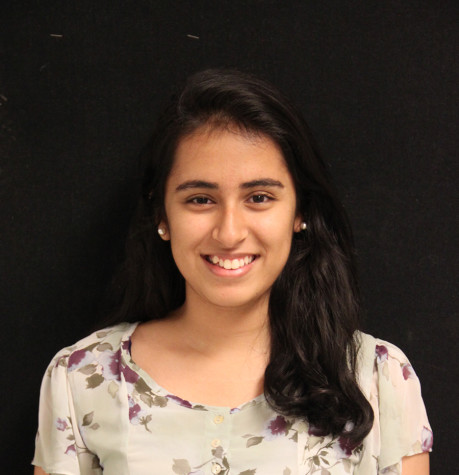
Senior Ayesha Vishnani was a writer and reporter for one year and is the opinion editor for The Express and BVNWnews.com. She is also involved in Model United Nations, Mock Trial and Forensics. She enjoys reading (especially the New York Times "Modern Love" essays), writing, poetry, Bollywood movies and music, Drake, coffee, philosophy and social movements. Her favorite part of newspaper is the positivity and the passion. She loves that she is constantly in the company of upbeat and quirky individuals and required to pursue her passion at the same time.



